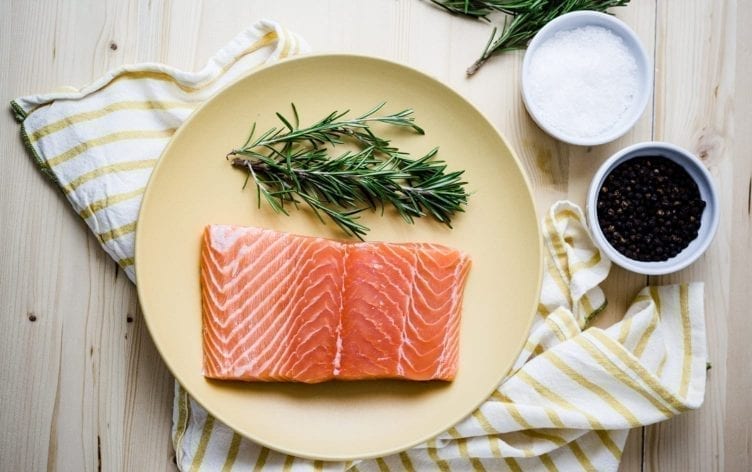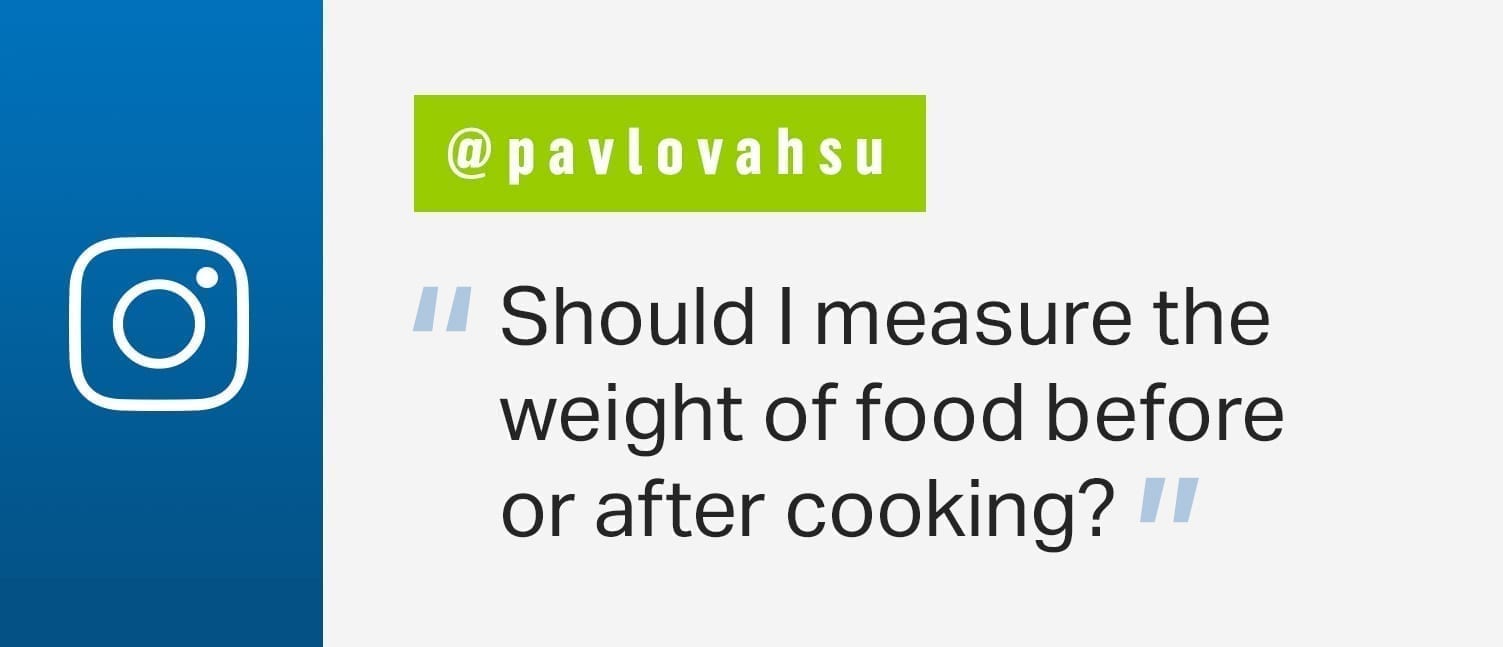Do You Weigh Meat Before Or After Cooking
Ask the RD: Should You Weigh Food Before or After Cooking?

January 18, 2020



Taking the time and initiative to measure and log your food is one of the most effective ways to successfully lose weight. Most people underestimate portions and serving sizes, especially when it comes to calorie-dense foods like nut butters, olive oil, sauces and dressings. That's why weighing and measuring foods is so important to ensure you're meeting your calorie goal for weight loss.
The best way to get the most accurate and consistent food measurement is to weigh and log foods before cooking. That's because the nutrition facts panels give us details for food in its packaged state. Most whole foods like whole grains, lean proteins and vegetables typically come uncooked and are calculated for nutrition when uncooked.
More importantly, numbers entered in apps like MyFitnessPal reflect the numbers on standardized food packaging. It's the cooking that's inconsistent and can alter the weight depending on the method, temperature, altitude, moisture and even amount of seasoning (Think about it: salt draws water out of meat, seafood and vegetables, affecting both weight and volume).
Meat and seafood may lose 20–25% of their weight and volume during cooking (that quarter-pound burger isn't quite so after cooking) and vegetables can lose as much as 50% of their weight and volume. A cup (150g) of raw sweet potatoes may shrink to 1/2 cup (75g) after roasting. While it may seem trivial, the calorie difference can add up quickly and slow your progress toward your goals. Cooked entries are estimates, so you are always better entering food in its raw, more accurate state whenever possible.
The fats we use to cook our food are often left out of calculations, too. For example, if you're weighing chicken after it's been cooked, you might just weigh the chicken and forget to add the olive oil that was used. Doing so would alter your calorie count and macros. When you enter raw food prior to cooking, you'll be more likely to factor in all the other parts of the recipe used to create the finished product.
What's most important is consistency. Avoid entering some foods before cooking and others after. Enter food the same way each time for the most accurate, consistent results. Thankfully, MyFitnessPal remembers your frequently used foods, which makes them easier to add later. The more you log, the easier it will get.
About the Author

Sidney Fry, MS, RD Sidney is a two-time James Beard Award-winning food and nutrition writer, editor and mom based out of Birmingham, Alabama. A registered dietitian with a passion for research and being proactive about health, she loves to eat, write, run and create simple, tasty meals with whole-food-based approach. Find out more from her website, Instagram or Twitter.
Related
Do You Weigh Meat Before Or After Cooking
Source: https://blog.myfitnesspal.com/ask-the-rd-should-you-weigh-food-before-or-after-cooking/#:~:text=The%20best%20way%20to%20get,food%20in%20its%20packaged%20state.
Posted by: eagletromsented.blogspot.com

0 Response to "Do You Weigh Meat Before Or After Cooking"
Post a Comment